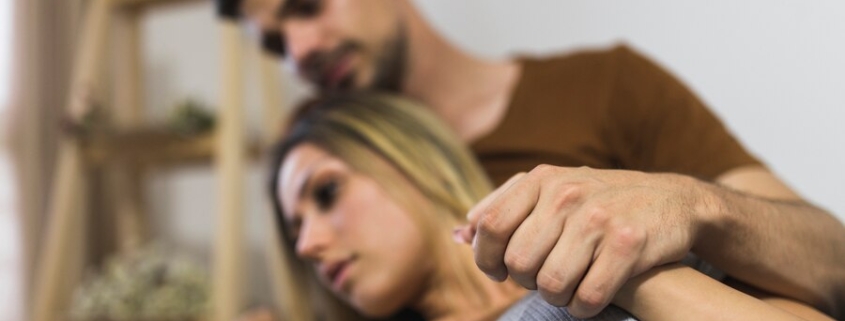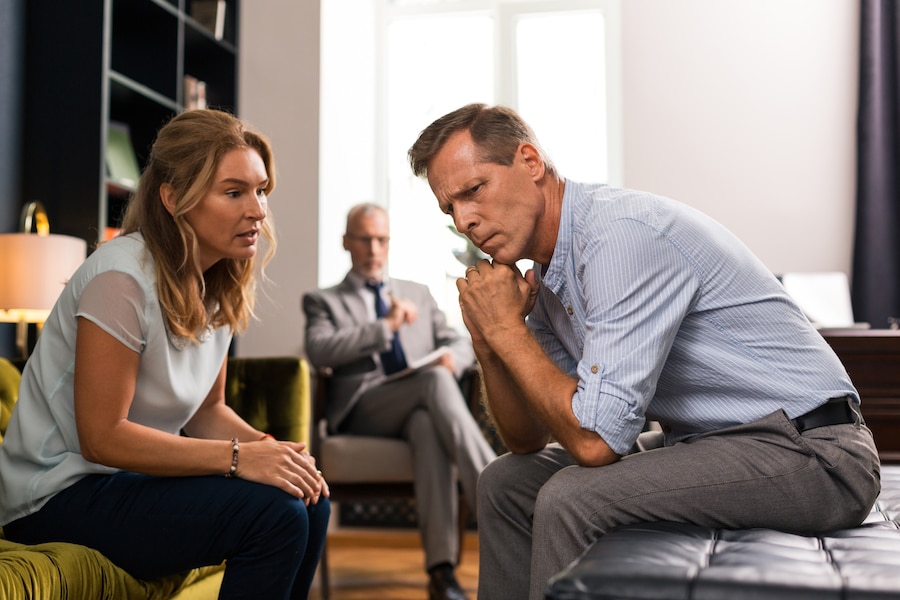In the journey of recovery from addiction, couples face unique challenges and opportunities. While the path to sobriety may be shared, the risk of relapse looms over both individuals, threatening to derail their progress and strain their relationship. However, with the right strategies and support in place, couples can proactively prevent relapse and strengthen their bond on the road to lasting recovery. In this comprehensive guide, we delve into the importance of relapse prevention for couples, exploring effective strategies, supportive resources, and the keys to building healthy, resilient relationships in the face of addiction. Couples rehab in Orange County offers specialized programs tailored to the needs of couples, providing the guidance and support necessary for couples to navigate the challenges of addiction recovery together.
Couples Rehab Services
Understanding Relapse: A Shared Challenge
Relapse is a common concern for individuals recovering from addiction, and when couples are navigating recovery together, the risk is compounded. It can stem from various factors, including triggers, stressors, or underlying emotional issues, and its consequences can impact both partners significantly. Recognizing the signs of relapse and taking proactive measures are essential for couples committed to sustaining their sobriety and providing mutual support through the challenges of recovery. By understanding the dynamics of relapse and implementing preventive strategies, couples can strengthen their resilience and fortify their commitment to a shared future of wellness and healthy relationships.
Effective Relapse Prevention Strategies for Couples
- Open Communication: Communication is the cornerstone of any healthy relationship, especially in the context of recovery. Couples should prioritize open, honest communication about their thoughts, feelings, and challenges related to addiction. By fostering a safe space for dialogue, couples can address potential triggers and stressors before they escalate and jeopardize their sobriety.
- Identify Triggers: Understanding the triggers that may lead to relapse is crucial for couples in recovery. Whether it’s certain environments, social situations, or emotional triggers, couples should work together to identify and avoid potential relapse triggers. By proactively managing triggers and developing coping strategies, couples can minimize the risk of relapse and stay on track with their recovery goals.
- Build a Support Network: Sobriety support is essential for individuals in recovery, and couples can benefit from building a strong support network together. This may include attending support group meetings, connecting with sober friends and family members, or seeking guidance from a therapist or counselor specializing in couples recovery. By surrounding themselves with positive influences, couples can reinforce their commitment to sobriety and draw strength from their support system during challenging times.
- Prioritize Self-Care: Self-care is vital for maintaining physical, emotional, and mental well-being, especially during times of stress or temptation. Couples should prioritize self-care activities that promote relaxation, stress relief, and overall wellness. This may include regular exercise, meditation, mindfulness practices, or engaging in hobbies and activities that bring joy and fulfillment. By taking care of themselves individually, couples can better support each other in their recovery journey.
- Develop Healthy Coping Mechanisms: Coping with cravings, stress, and emotional triggers is a fundamental aspect of relapse prevention. Couples should work together to develop healthy coping mechanisms that enable them to manage difficult emotions and situations without turning to substances. This may involve practicing relaxation techniques, seeking professional support when needed, or engaging in activities that promote stress relief and emotional well-being.

Supportive Resources for Couples in Recovery
In addition to implementing relapse prevention strategies, couples can benefit from accessing supportive resources and services tailored to their unique needs. Some key resources for couples in recovery include:
- Couples Therapy: Couples therapy provides a structured environment for couples to address relationship issues, improve communication skills, and strengthen their bond in recovery. A trained therapist can help couples navigate challenges related to addiction, rebuild trust, and develop healthier patterns of interaction.
- Support Groups: Support groups offer a valuable source of peer support, guidance, and encouragement for couples in recovery. Whether attending meetings together or separately, couples can connect with others who understand their experiences and share strategies for maintaining sobriety.
- Online Resources: The internet provides a wealth of resources for couples in recovery, including educational materials, self-help tools, and virtual support communities. Online forums, websites, and mobile apps offer convenient access to information and support whenever couples need it.
- Professional Guidance: Seeking guidance from addiction specialists, therapists, or counselors can provide couples with personalized support and guidance on their recovery journey. These professionals can offer insights, tools, and strategies to help couples overcome challenges and build a healthier, more fulfilling life together.
Building a Future of Joint Wellness and Healthy Relationships
The path to recovery from addiction is a challenging one, requiring dedication, perseverance, and a strong support system. For couples facing this journey together, the road can be even more demanding, but it also offers unique opportunities for growth, healing, and building a future of joint wellness and healthy relationships.
At the core of successful recovery for couples is the prioritization of relapse prevention. This involves not only addressing the individual triggers and risk factors for each partner but also understanding and supporting each other’s journey towards sobriety. Couples can work together to identify potential pitfalls, develop coping strategies, and create a supportive environment that minimizes the risk of relapse.
In addition to prioritizing relapse prevention, couples can benefit from accessing supportive resources tailored to their unique needs. This may include couples therapy sessions, support groups specifically for couples in recovery, and educational programs focused on strengthening relationships and promoting wellness. By actively engaging in these resources, couples can gain valuable insights, tools, and strategies for navigating the challenges of recovery together.
Find Relapse Prevention for Couples at Couples Rehab
Relapse prevention for couples is a collaborative journey that demands dedication, communication, and mutual support. By uniting efforts to identify triggers, devise coping strategies, and access supportive resources, couples can actively prevent relapse and fortify their bond along the path to enduring recovery. With shared commitment and resilience, couples can overcome obstacles together, fostering a future of sobriety and strengthened relationships. Reach out to us today to learn more about how our programs can support you and your partner on this journey towards lasting recovery and relationship wellness.

FAQs
- What is relapse prevention, and why is it important for couples in recovery?
- Relapse prevention involves strategies and techniques aimed at preventing individuals in recovery from returning to substance use. For couples in recovery, relapse prevention is crucial as it helps them maintain sobriety, strengthen their relationship, and navigate the challenges of recovery together.
- What are some effective relapse prevention strategies for couples?
- Effective relapse prevention strategies for couples include open communication, identifying triggers, building a support network, prioritizing self-care, and developing healthy coping mechanisms. These strategies help couples proactively address potential relapse triggers and maintain their commitment to sobriety.
- How does open communication contribute to relapse prevention for couples?
- Open communication allows couples to discuss their thoughts, feelings, and challenges related to addiction openly. By fostering a safe space for dialogue, couples can address potential triggers and stressors before they escalate and jeopardize their sobriety.
- What are triggers, and why is it essential for couples to identify them in relapse prevention?
- Triggers are factors or situations that may lead to cravings or relapse. It’s essential for couples to identify triggers as it helps them avoid potential relapse triggers, develop coping strategies, and stay on track with their recovery goals.
- How can couples build a supportive network for relapse prevention?
- Couples can build a supportive network by attending support group meetings together, connecting with sober friends and family members, and seeking guidance from therapists or counselors specializing in couples recovery. A strong support network provides couples with encouragement, guidance, and accountability in their recovery journey.
- What role does self-care play in relapse prevention for couples?
- Self-care is vital for maintaining physical, emotional, and mental well-being, especially during times of stress or temptation. Couples should prioritize self-care activities that promote relaxation, stress relief, and overall wellness, enabling them to better support each other in their recovery journey.
- What are some supportive resources available for couples in recovery?
- Supportive resources for couples in recovery include couples therapy, support groups, online resources, and professional guidance from addiction specialists or therapists. These resources provide couples with personalized support, guidance, and strategies for navigating the challenges of recovery together.
- How can couples strengthen their relationship while focusing on relapse prevention?
- Couples can strengthen their relationship by prioritizing open communication, trust-building, and mutual support in their relapse prevention efforts. By working together to address triggers, develop coping strategies, and access supportive resources, couples can fortify their bond and promote lasting recovery.
- What steps can couples take to proactively prevent relapse and fortify their bond in recovery?
- Couples can proactively prevent relapse by identifying triggers, developing coping strategies, building a supportive network, prioritizing self-care, and accessing supportive resources tailored to their unique needs. By uniting efforts in relapse prevention, couples can strengthen their bond and navigate the challenges of recovery together successfully.
- How can couples find relapse prevention support tailored to their needs?
- Couples can find relapse prevention support tailored to their needs by reaching out to couples rehab centers, therapists specializing in couples recovery, or support groups specifically for couples in recovery. These resources offer guidance, support, and strategies for preventing relapse and fostering healthy, resilient relationships in recovery.



